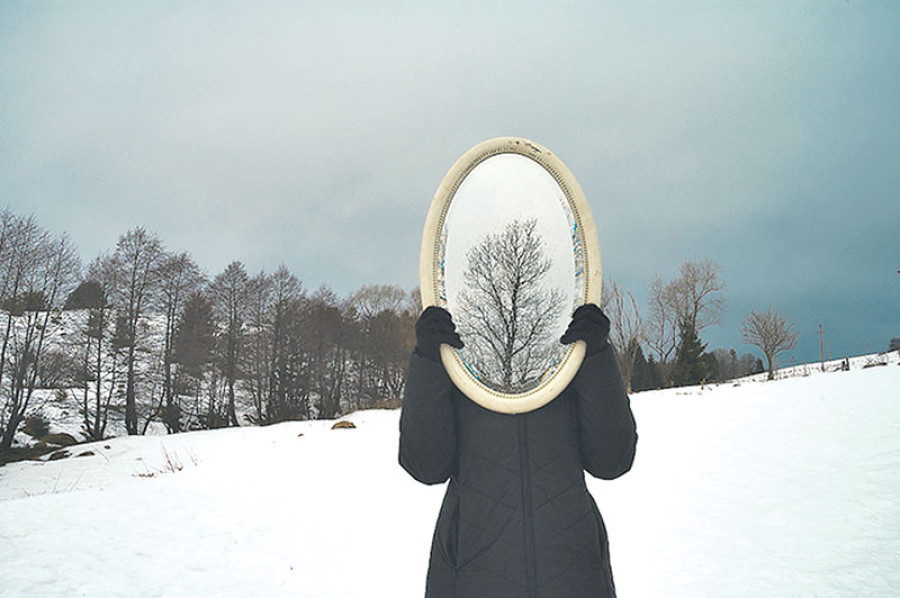Opinion
Mirror to our soul
The Nepali state must go beyond just consulting with elites on the draft CIEDP and TRCA bill
The much-delayed draft bill on the amendment of the Commission on Investigation of Enforced Disappeared Persons (CIEDP) and Truth and Reconciliation Commission Act (TRCA) has now become public. After taking more than two years to complete, the government claims that the amended Act takes into account the Supreme Court decision and international practices; although to be clear upholding international standards on right to remedy is an obligation on Nepal and not an option. The next steps in this process are critical not only for conflict victims who have struggled all these years for justice, but for the future of Nepal and Nepali citizens.
At the important international conference in April 2018 in Kathmandu on impunity and human rights in South Asia organised by Nepal’s National Human Rights Commission, the global expert on truth commissions and transitional justice initiatives Priscilla Hayner clarified that the transitional justice (TJ) process was not just about understanding what happened, but why it happened. She stated that the TJ process was “like holding up a mirror to your soul—a legacy of who you are as a country.” The question of what our soul looks like coming out of the conflict should haunt all citizens.
Beyond snapshots
For many Nepalis, the conflict was “out there”—the horror of killings, disappearances, rapes and torture of the 10 years were far removed from daily lives. The current suffering of thousands remains a distant reality. While the demands for justice for victims is recognised, there is a general tendency to feel that given the delays and the overall longing for the future “prosperous” Nepal, we should now take the draft confidently forward to pass in Parliament with minor edits.
This would be a mistake. The amended Act is to govern the transitional justice process in Nepal and will decide how exactly we look into the past, what kind of mirror we use to look into our soul and learn from the past and guide us to become the kind of nation we want to be in the future. The brave testimonies of conflict victims and families and human rights defenders have given a glimpse of the depths of depravity—rape of girls, summary executions, barbaric torture, etc—to which the country had descended. But these snapshots are all that we have. We do not have a full account of the human rights violations and why they happened. How will we ever understand the extent to which, and why, we lost basic levels of human civilisation and decency—Nepalis with Nepalis—and ensure we never return to those depths again, without a proper transitional justice process?
In a recent interview in this paper ( June 25), Attorney General Agni Kharel stated that various consultations were undertaken and suggestions from myriad sources including victims’ groups, national and international human rights organisations, ambassadors and other international officials had been included in the draft.
The exact nature of those past consultations is not known but the government has taken the positive step of stating that consultations on the new draft will be held. It is essential that these consultations be realistic and genuine and ensure the centrality of victims with their rights and views fully respected. The excellent briefing paper titled “Transitional justice in Nepal: The way forward”, recently made public by the Conflict Victims’ Common Platform in collaboration with many human rights organisations in Nepal, not only details the long and arduous battle for justice, but also options going forward including a system of vetting to ensure non-repetition and meaningful broad-based consultations with clear agendas.
The Nepali state must move beyond just consulting with political elites; it is only by ensuring meaningful and broad-based public participation that it can craft the appropriate context-specific transitional justice program. And it is the victims and other stakeholders who through their participation and sharing of experiences and demands for justice who will best be able to ensure that our children and our children’s children will not have to suffer the horrors they did. These consultations should not be hurried for the sake of random time-limits, or international representatives’ tenure or donor project deadlines.
Time for citizens to step up
There are indications of serious weaknesses in this draft document. This includes how violations will be prosecuted given that torture is still not criminalised and the new penal code coming into effect in August will not have a retroactive effect. There are also issues of sentencing given concessional penalties—if an alleged perpetrator confesses he raped, tortured and brutally murdered 20 women, he will be sent to three years of community service. Furthermore, it is unclear how all of the stipulated goals such as truth-seeking, reparation, prosecution etc., can be undertaken by a dysfunctional Truth and Reconciliation Commission (TRC) that has muddled through three and half years and which holds little credibility among victims groups.
To be underlined, the TJ process is not just for victims’ groups; it is for all current and future citizens of Nepal. Victims and society as a whole have the right to know the truth about violations and to demand accountability. In the currently political context where political party affiliations and patronage networks have de-legitimised “civil society,” it is time for individuals as citizens to come to the fore and demand a proper victim-centered transitional justice process.
The draft appears to have already foreclosed how deep we are able to look into our collective souls and address harms and violations. Without a proper consultation process with all stakeholders, preventing these hideous violations from happening again will remain but a written goal. And we can begin crying for future generations of Nepalis today.
Tamang is a political scientist




 9.6°C Kathmandu
9.6°C Kathmandu









